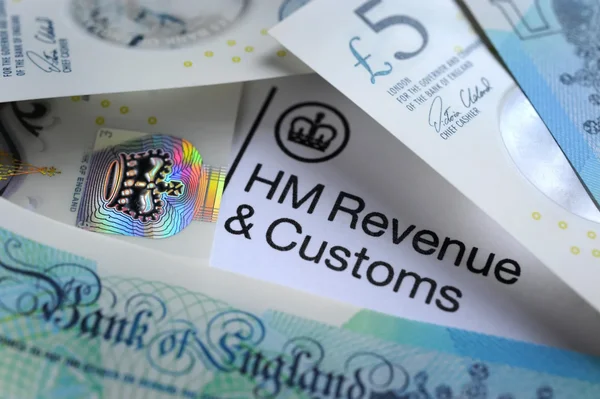How HMRC’s Tax Proposal Affects You

In an unprecedented move, HMRC has proposed changes to the taxation of Individual Savings Accounts (ISAs). If implemented, these changes could significantly impact the way UK residents manage their savings.
The proposal aims to target the tax-free status of ISAs, a feature that has made these accounts immensely popular among savers. Currently, ISAs are exempt from income tax and capital gains tax, providing a substantial benefit to those looking to maximise their savings.
This article explores HMRC's proposed taxation on ISAs, the potential implications for savers, and how you can best navigate these changes with the assistance of the Pie Tax App and the expert tax assistants available on the Pie app
ISAs' Existing Benefits
ISAs (Individual Savings Accounts) have long been a cornerstone of personal savings in the UK due to their tax-free status. Under the current rules, any interest earned, dividends received, or gains on investments within an ISA are exempt from income tax and capital gains tax. This tax-free status has made ISAs a highly effective tool for growing savings and investments over time, reducing the tax burden on individuals.


The Proposed Changes
HMRC's proposal to tax ISAs would drastically alter their financial landscape. If the government decides to implement these changes, savers might face taxation on income and capital gains earned within their ISAs. This move could deter many from using ISAs, undermining their purpose as a tax-efficient savings vehicle. The proposal has met with opposition from financial experts and savers alike, who argue that it would penalise responsible saving and investment behaviour.

A recent study revealed that 95% of UK adults hold some form of ISA. Additionally, the collective value of ISAs in the UK is estimated to be around £584 billion. These numbers highlight the widespread reliance on ISAs for tax-free savings and the profound impact HMRC's proposed changes could have on the populace.Potential Financial Impact

Surveys indicate that 73% of ISA holders are against the proposed changes, fearing that their investments will no longer be tax-efficient. Another 65% believe the changes would discourage long-term saving, which goes against the government's policy of promoting financial independence and stability.Public Reaction to Proposal

Understanding the Current Tax Benefits
Under the present rules, ISAs offer significant tax advantages. Savers enjoy tax-free interest, dividends, and capital gains. This makes ISAs a go-to choice for many looking to grow their wealth without worrying about the tax man. If HMRC's proposal goes through, the advantages that have made ISAs so popular would be compromised.
Moreover, it might lead to a renewed interest in alternative tax-efficient vehicles, such as pension schemes or offshore accounts, as savers seek to maintain their tax efficiency. However, unlike ISAs, these alternatives often come with their own set of complexities and restrictions.
The Way Forward
If the proposed taxes on ISAs become a reality, savers will need to strategise to minimise their tax burden. This may involve diversifying investments, seeking expert financial advice, and potentially shifting funds away from ISAs into other tax-efficient instruments. The Pie Tax App and expert tax assistants available on the Pie app can provide crucial guidance.
Financial experts argue that any legislative changes to ISA taxation should be accompanied by clear guidance and transitional periods to allow savers to adjust. In the meantime, it is advisable to stay informed and ready to act accordingly.

Tips on HMRC's Attempt to Tax ISAs

HMRC's proposal to tax ISAs may affect your savings strategy. It's crucial to understand these changes to protect your tax-free savings.Understanding HMRC's ISA Tax Proposal

The proposed tax on ISAs could reduce your overall returns. Assess how this may impact your long-term financial goals and plan accordingly.Potential Impact on Your Savings

Consult with a financial advisor or tax expert. Proactive planning can help you navigate these changes seamlessly and maintain your financial stability.Steps to Mitigate the Effects of Tax

Fun Fact About ISAs
Did you know that the first ISAs were introduced in 1999, replacing personal equity plans (PEPs) and tax-exempt special savings accounts (TESSAs)? Their introduction aimed to simplify tax-free saving and they quickly became Britain's favourite savings vehicle.
Handling Taxation Changes

If HMRC's proposal to tax ISAs is enacted, adopting a proactive approach could mitigate its impact. Firstly, monitor legislative developments to remain well-informed. With changes on the horizon, it's critical to understand new regulations and how they will affect your savings strategy.
Additionally, leveraging the Pie Tax App can help you stay ahead of the curve. By providing personalised advice and real-time updates, the app ensures you manage your savings in line with legal requirements. Assess the viability of alternative savings vehicles that might offer similar tax advantages to those previously enjoyed with ISAs.

Consider Pension Contributions: Pensions often offer higher tax relief on contributions, which could serve as an effective alternative to ISAs should the tax-free status change. It is essential, however, to note the different rules and restrictions that come with pension plans. Explore Lifetime ISAs: Lifetime ISAs offer government bonuses on contributions which can offset potential taxes on earnings. They come with restrictions, primarily being aimed at first-time home buyers and those saving for retirement.Alternative Savings Vehicles

Regular Updates: Stay updated on HMRC announcements and consult reliable sources for updates on any changes to ISA regulations. Staying informed can help you plan more effectively and make strategic decisions. Professional Advice: Financial advisers can provide tailored strategies based on your unique financial situation, ensuring that you make the most tax-efficient decisions despite any new regulations that might come into play.Stay Informed
Summary
The discussion around HMRC's proposed ISA taxation underscores the importance of staying informed and adapting to potential regulatory changes. ISAs have long been a favoured savings vehicle due to their tax-exempt status, but proposed changes could challenge their efficiency.
Navigating these changes with the right tools and advice is crucial. The Pie Tax App and the expert tax assistants available on the Pie app offer indispensable resources, providing guidance on alternative savings options and strategic adjustments. Utilising such resources ensures you stay on top of your financial game, irrespective of new legal landscapes. By preparing now, you can safeguard your savings against future uncertainties and continue to grow your wealth efficiently.











